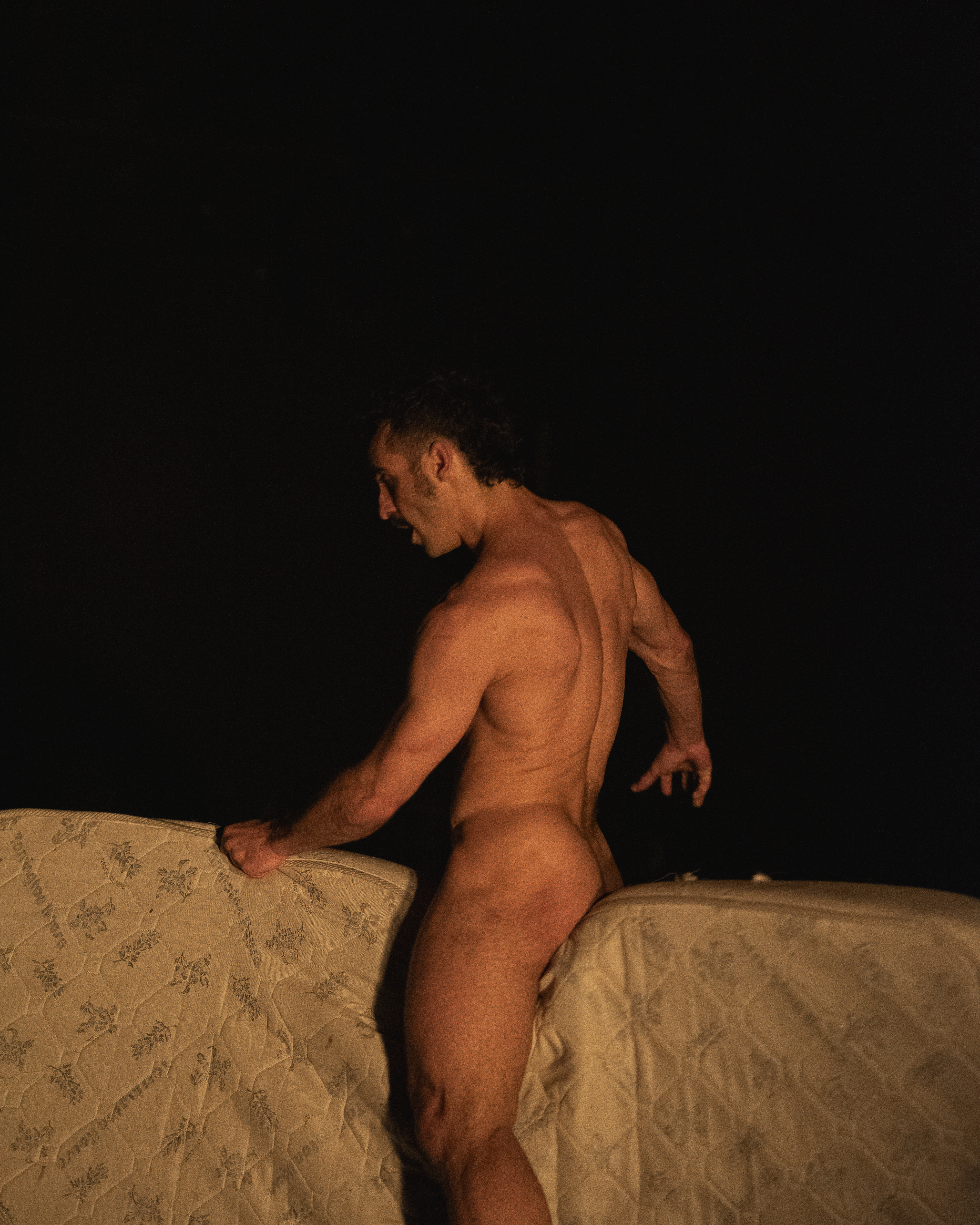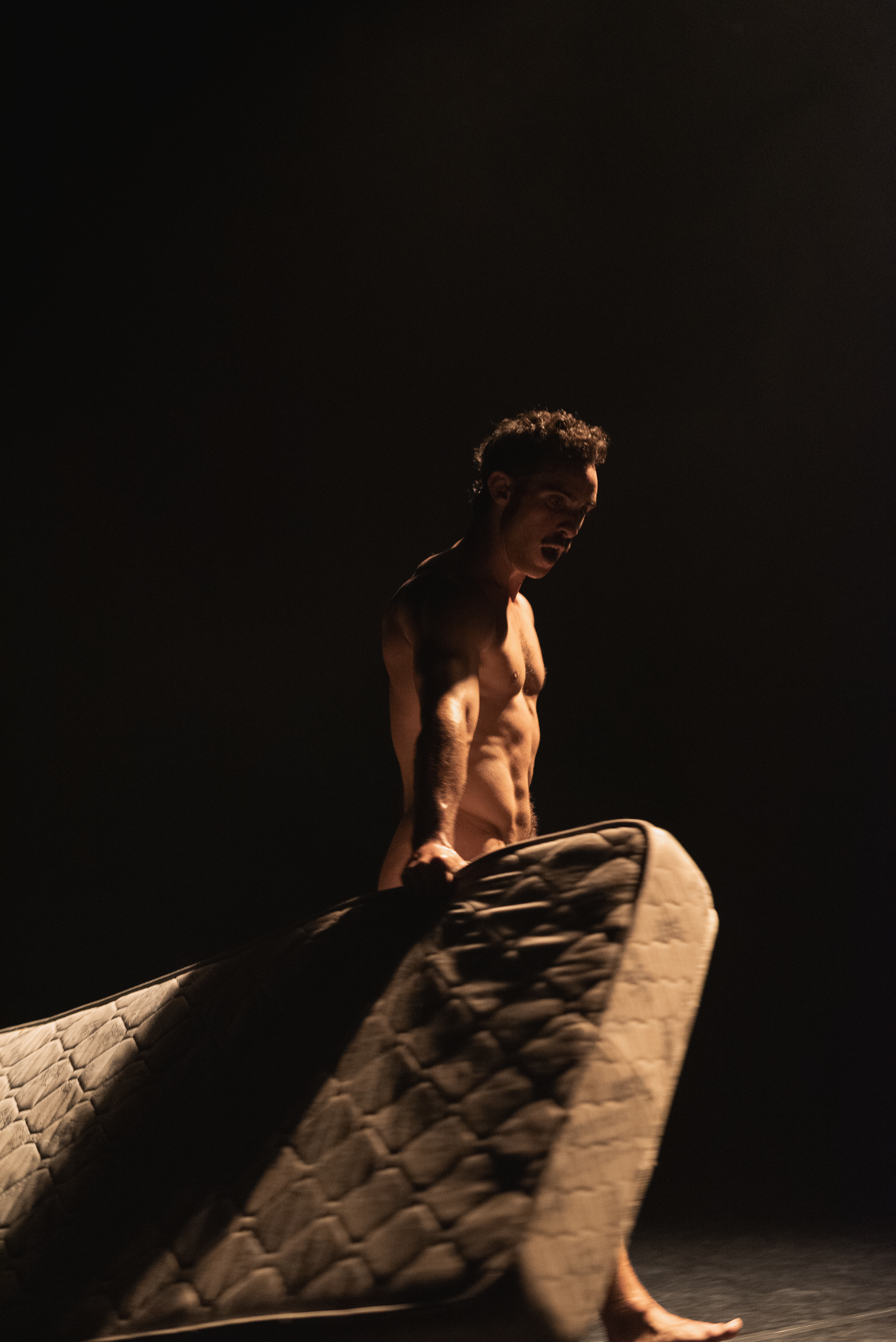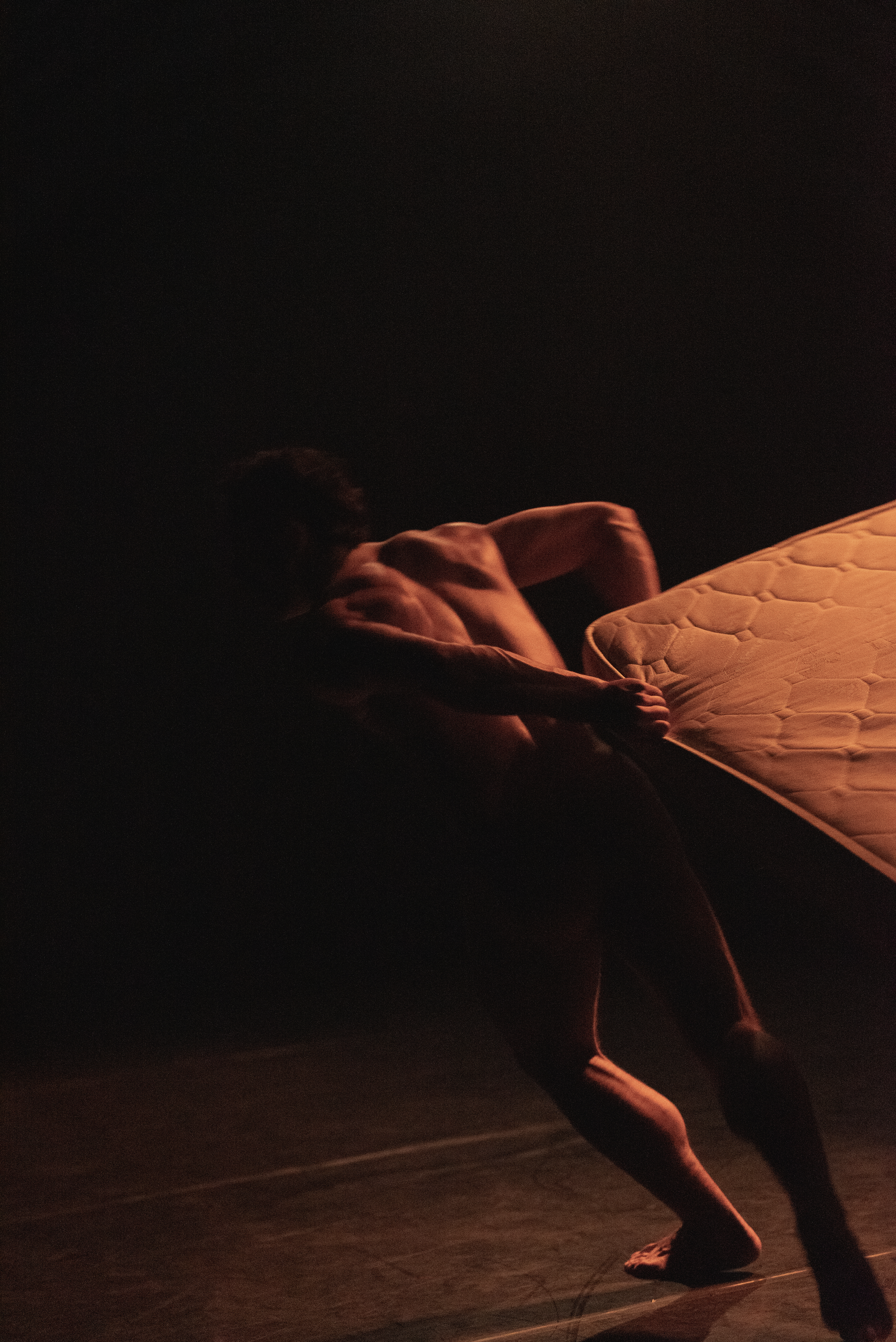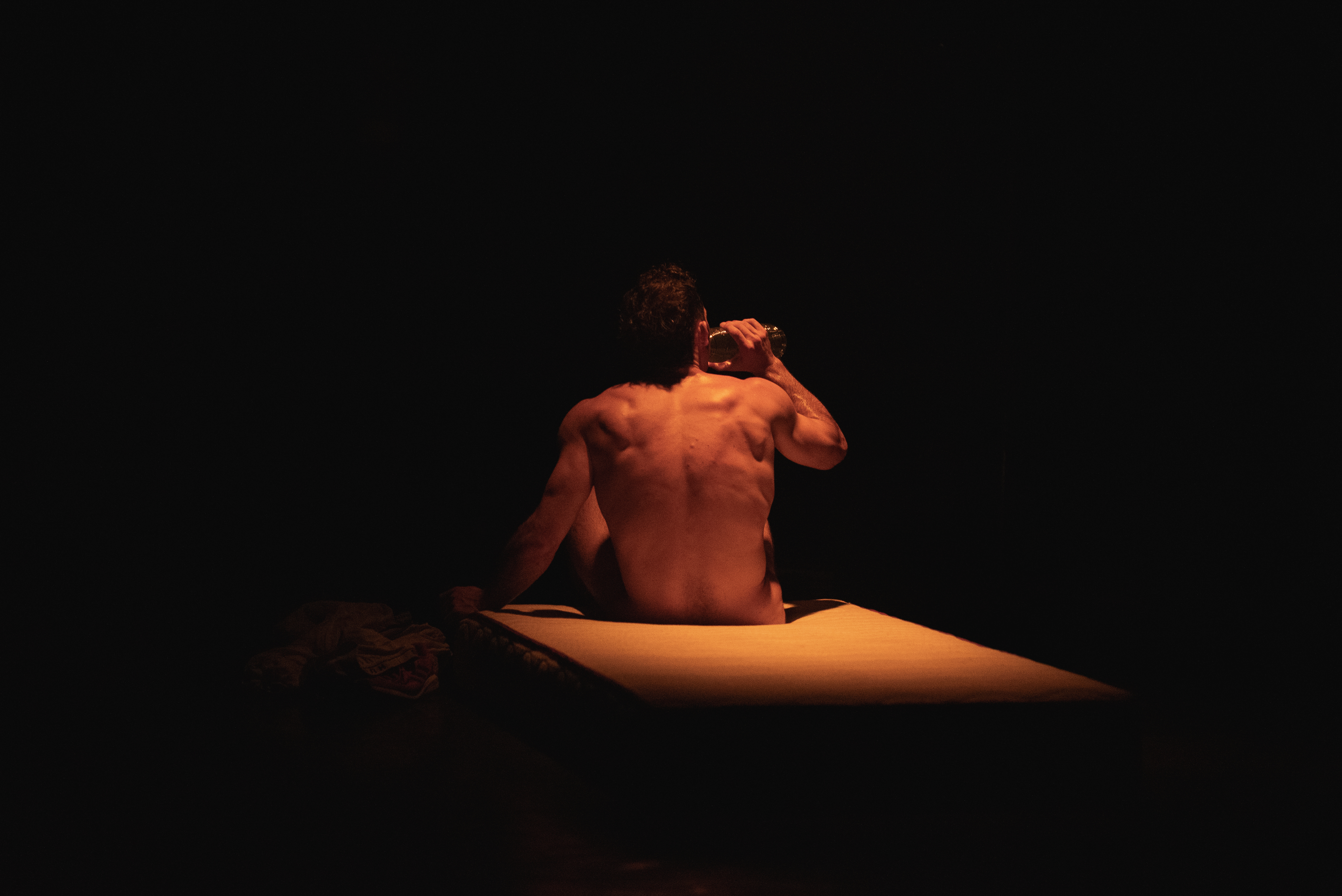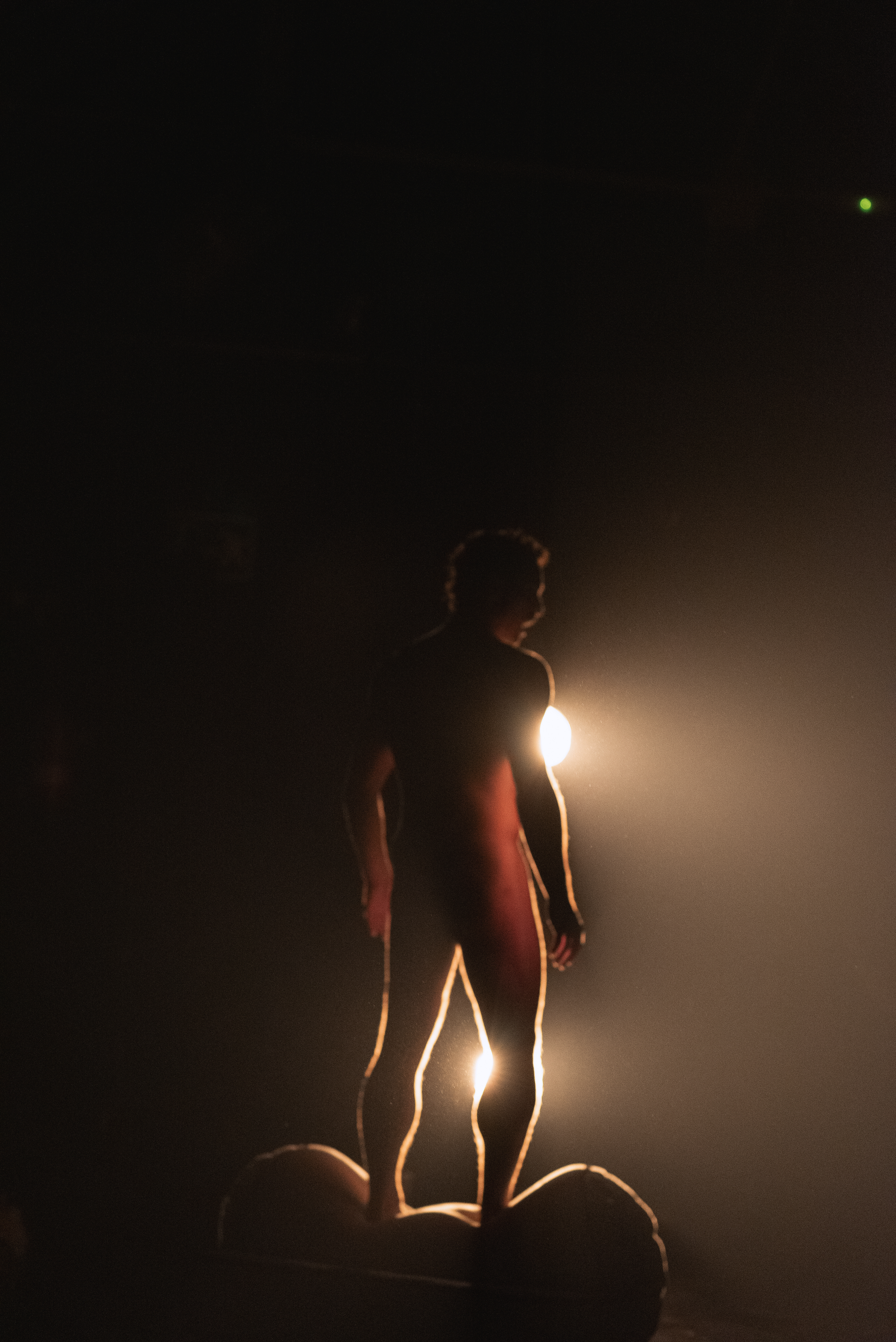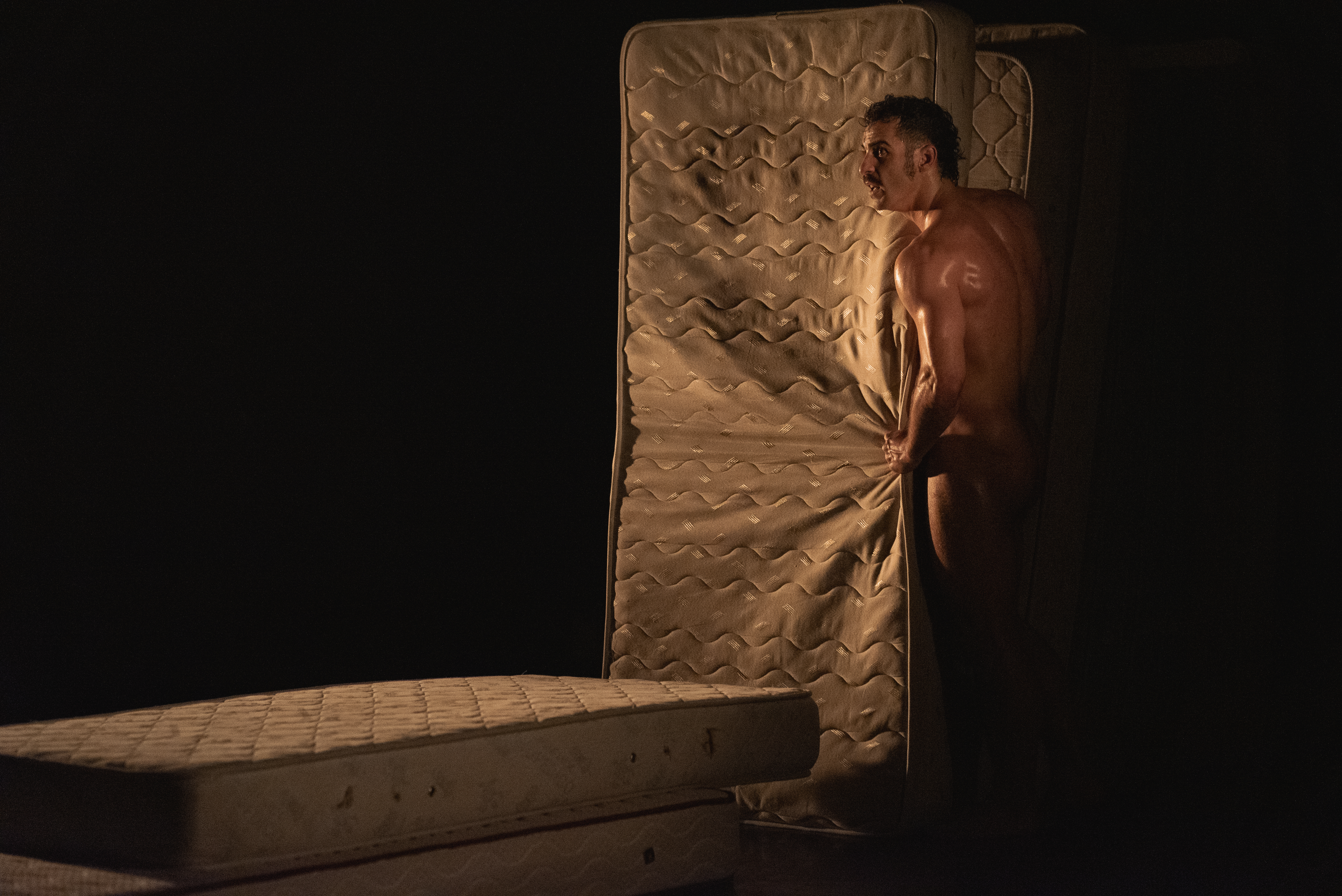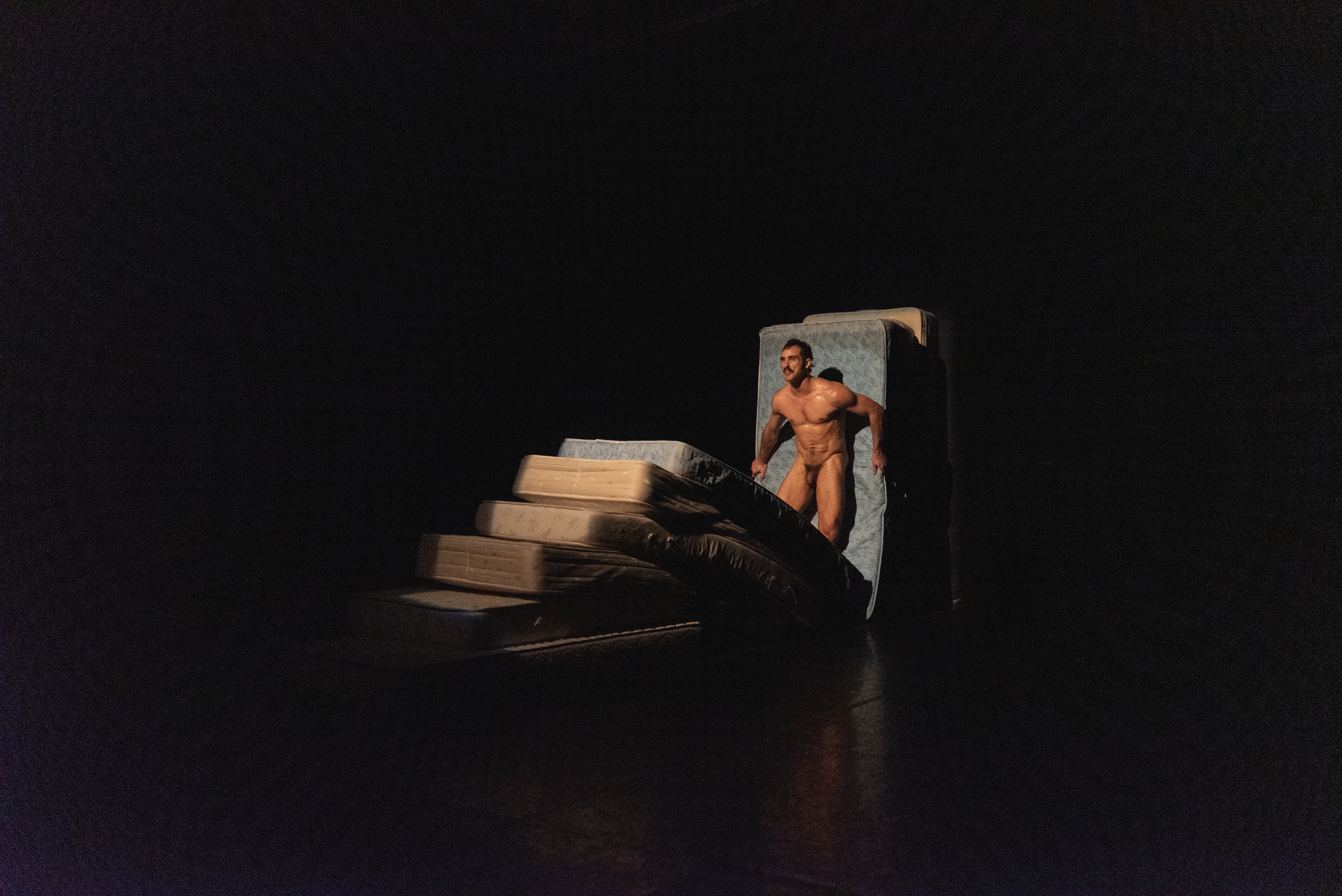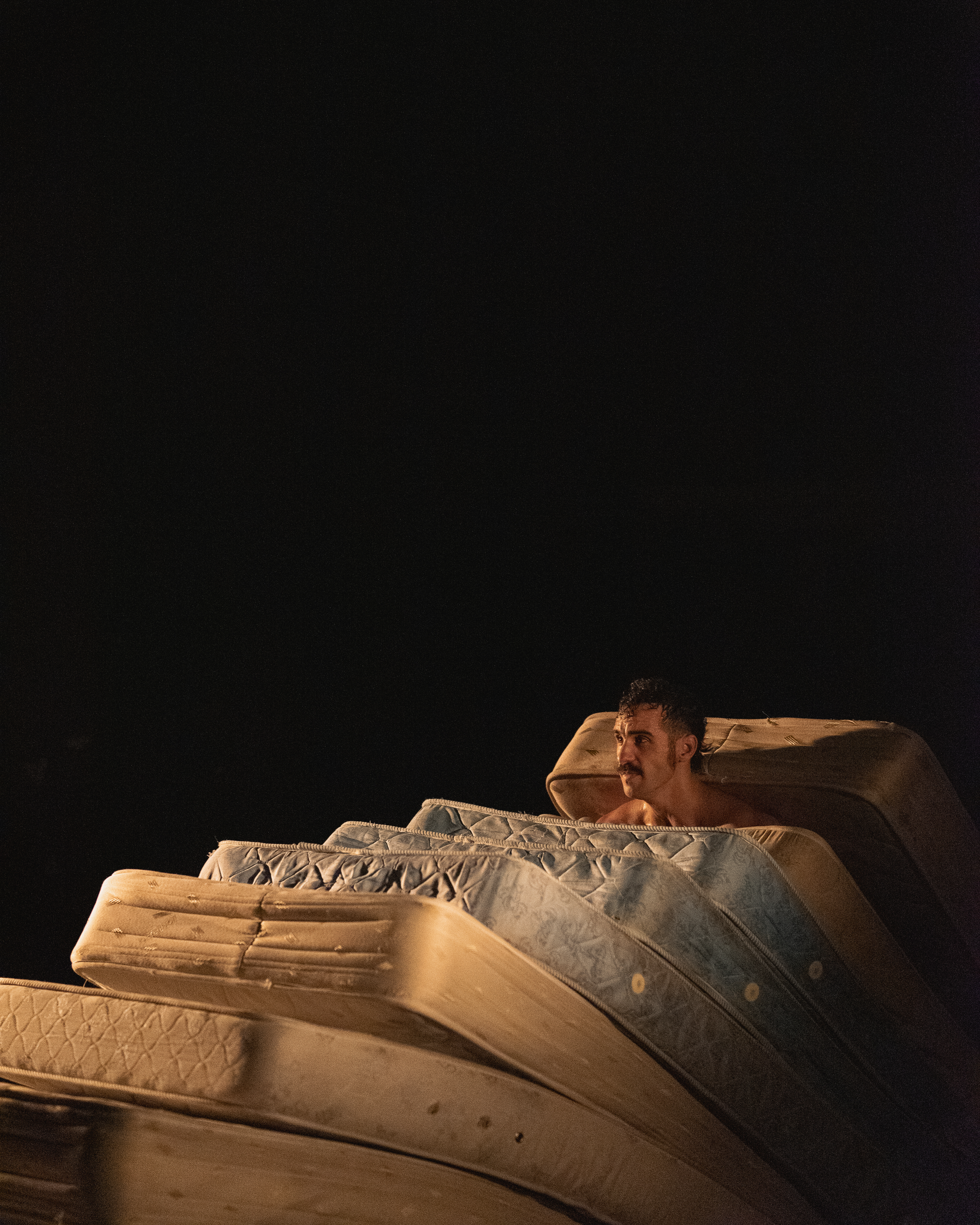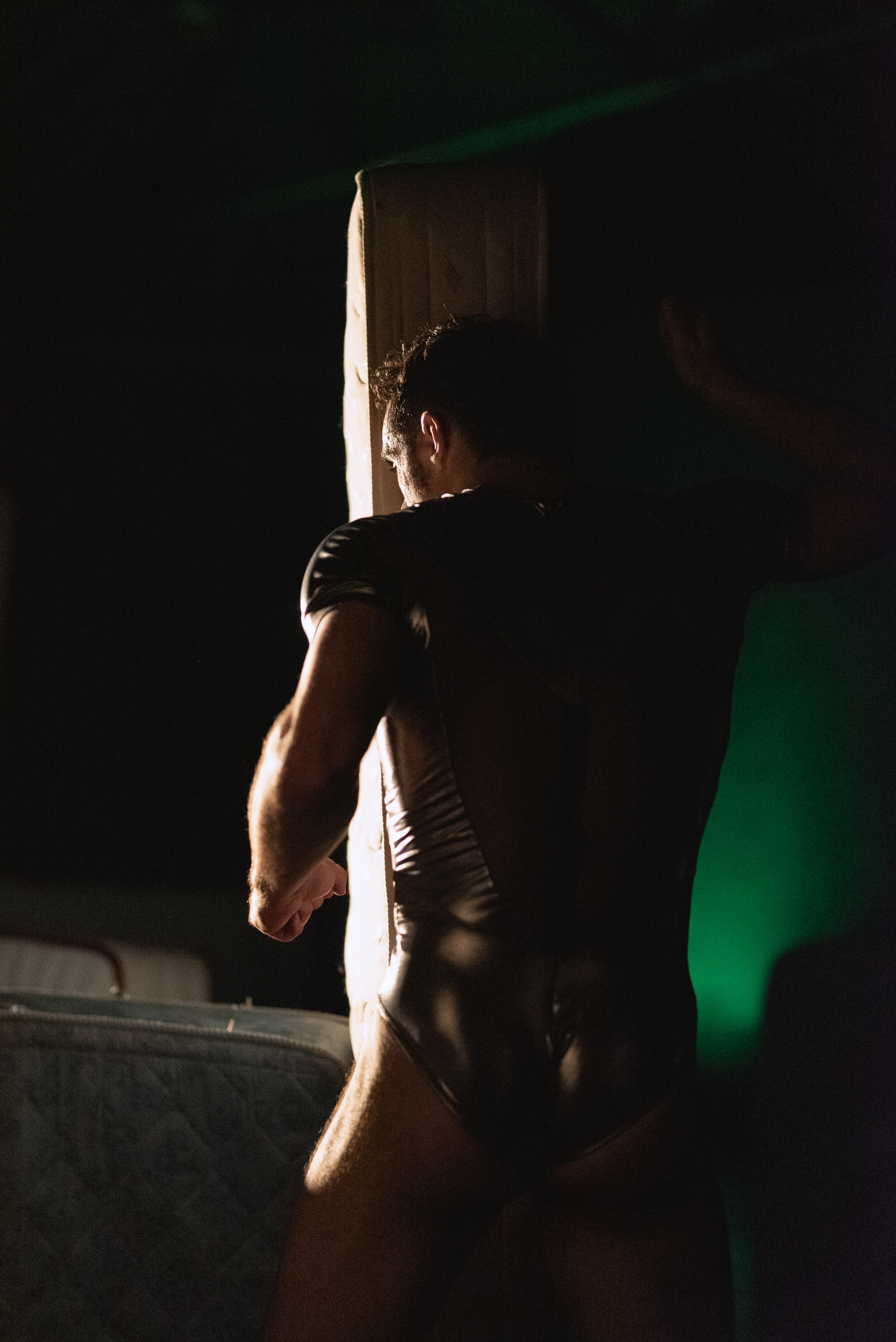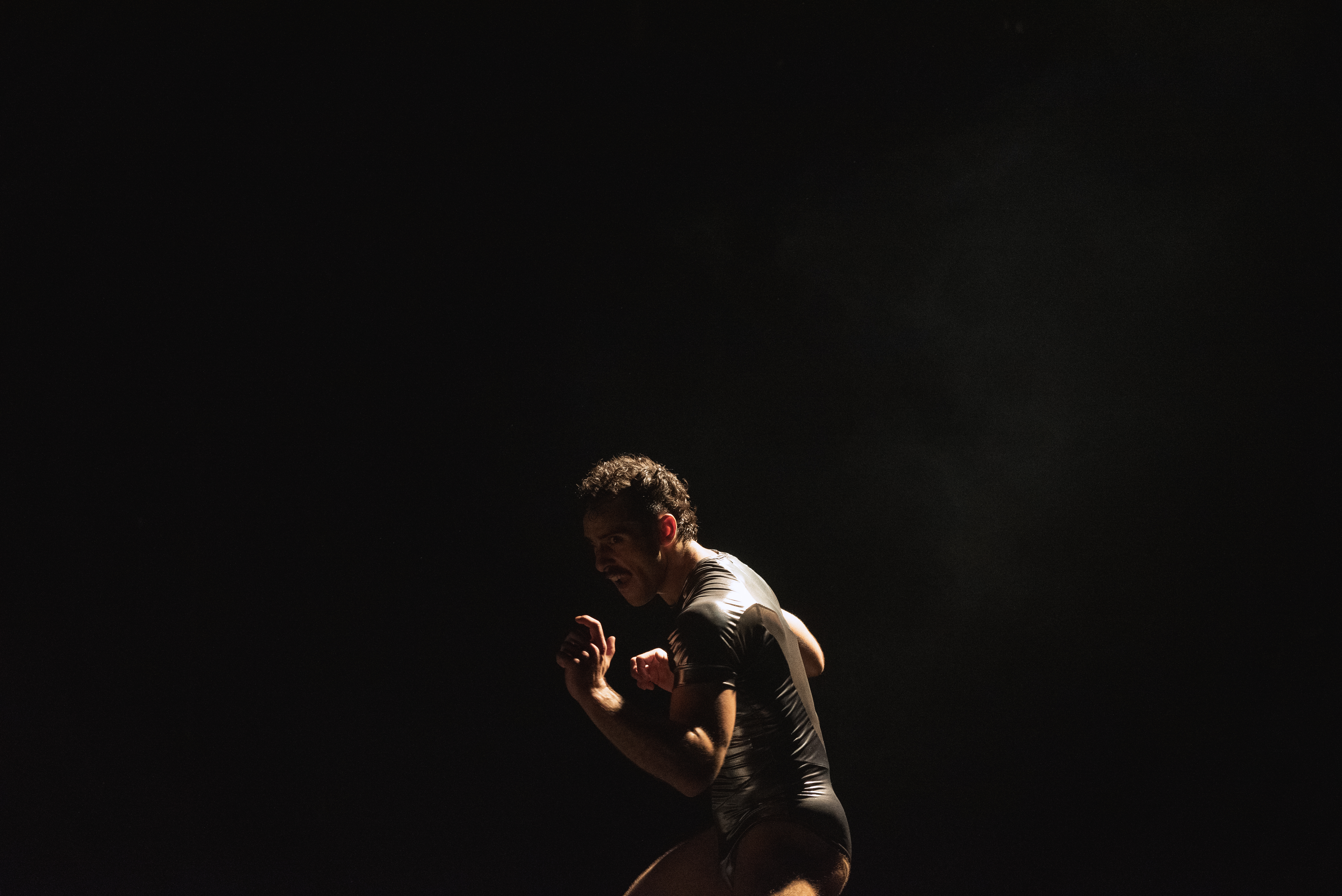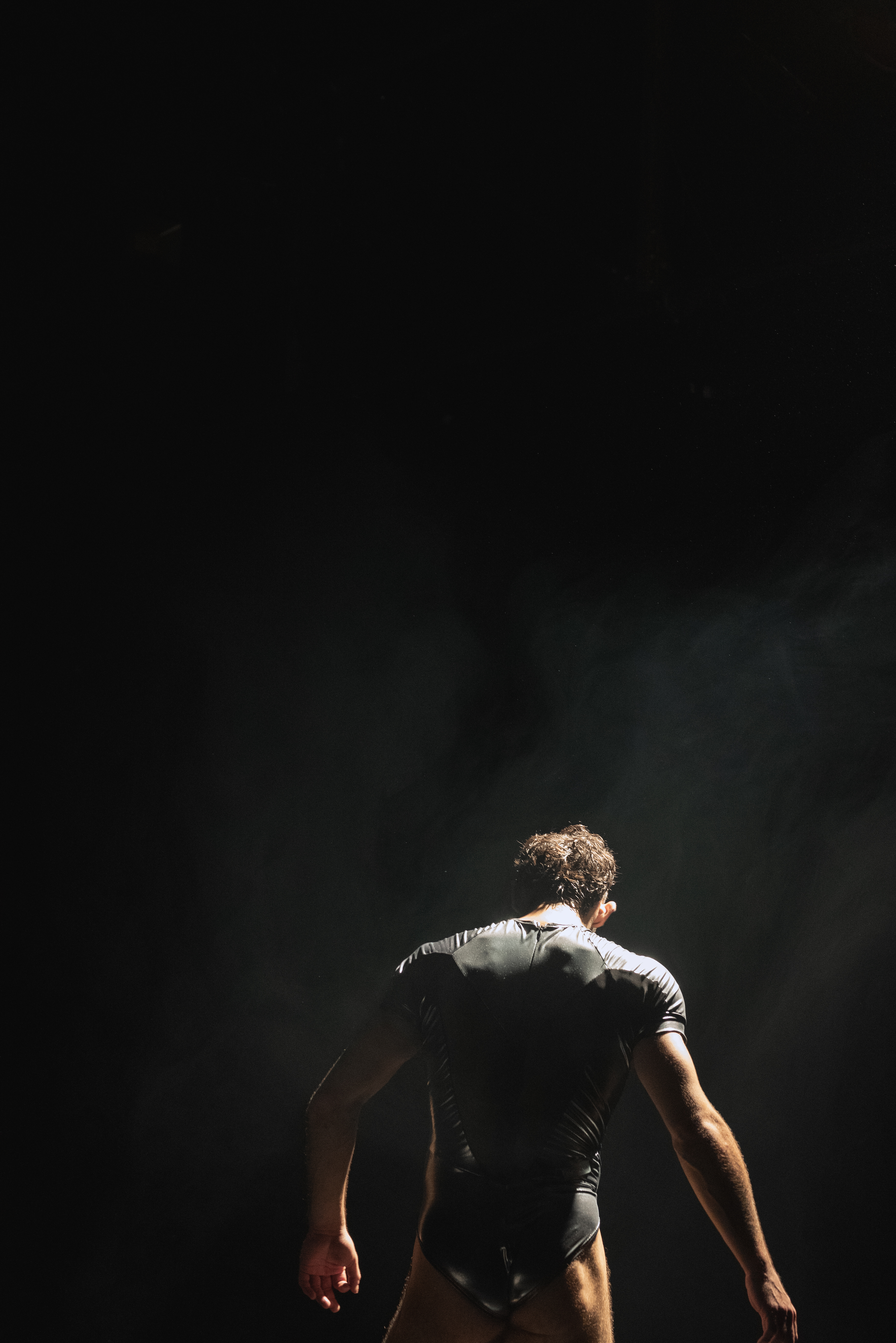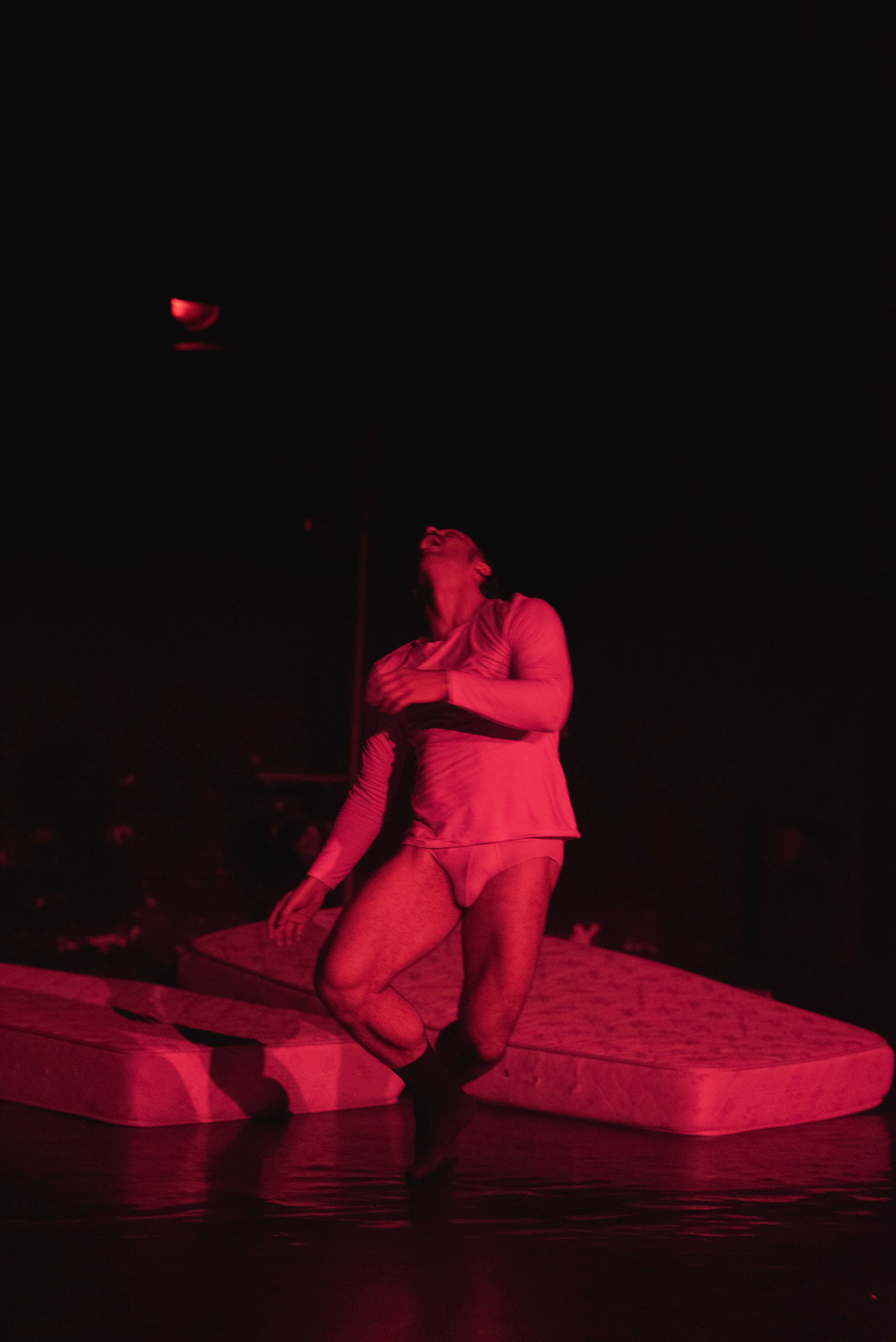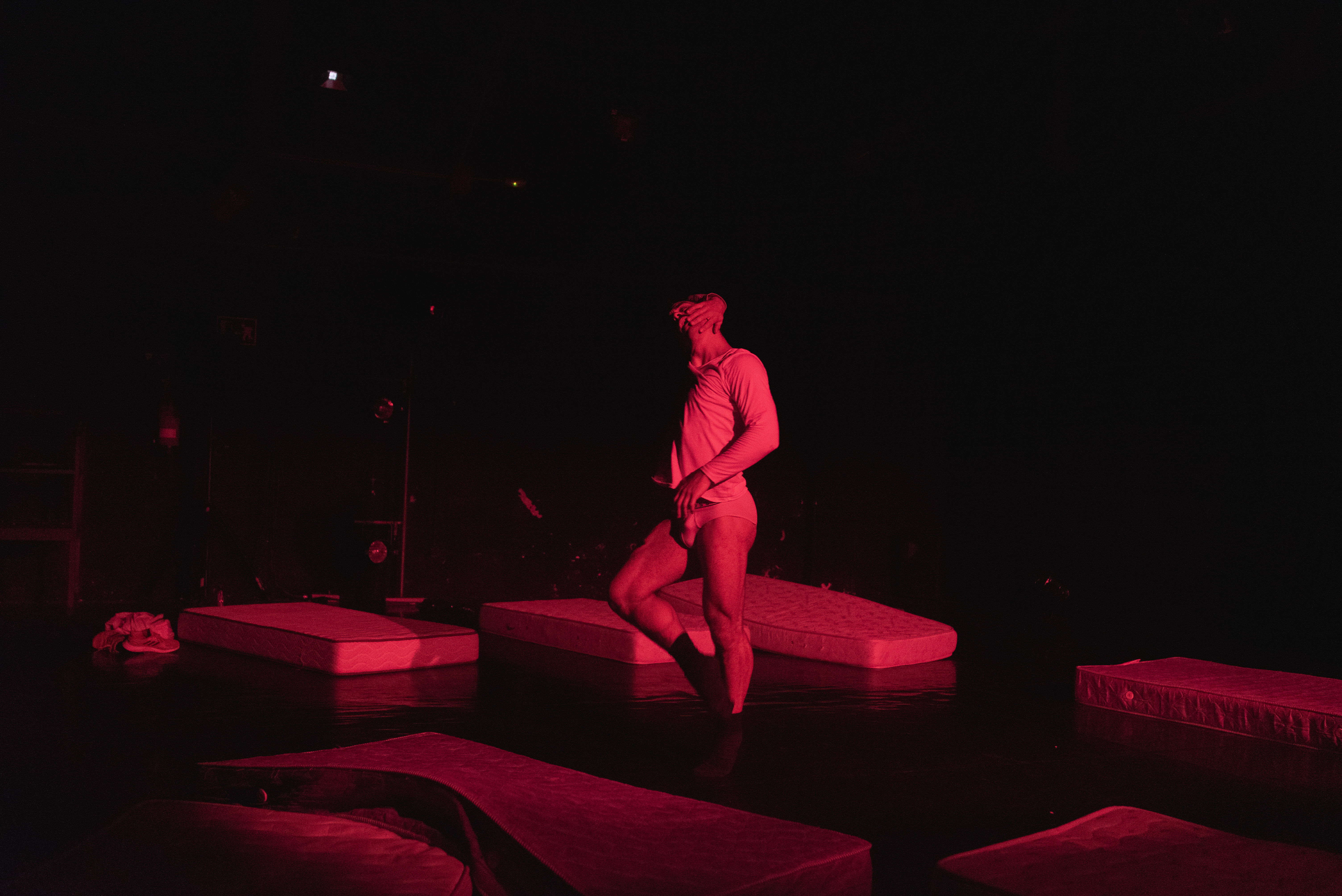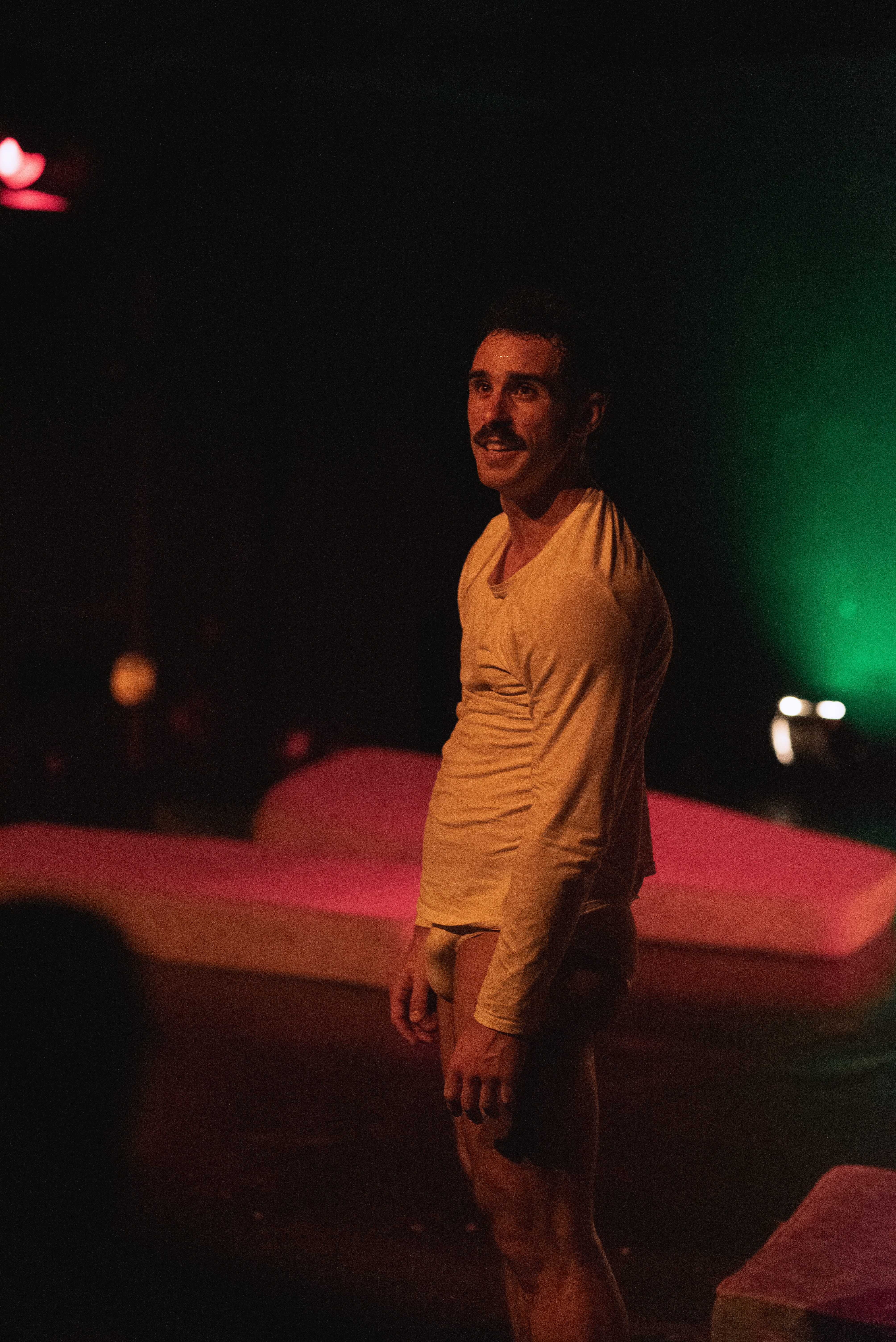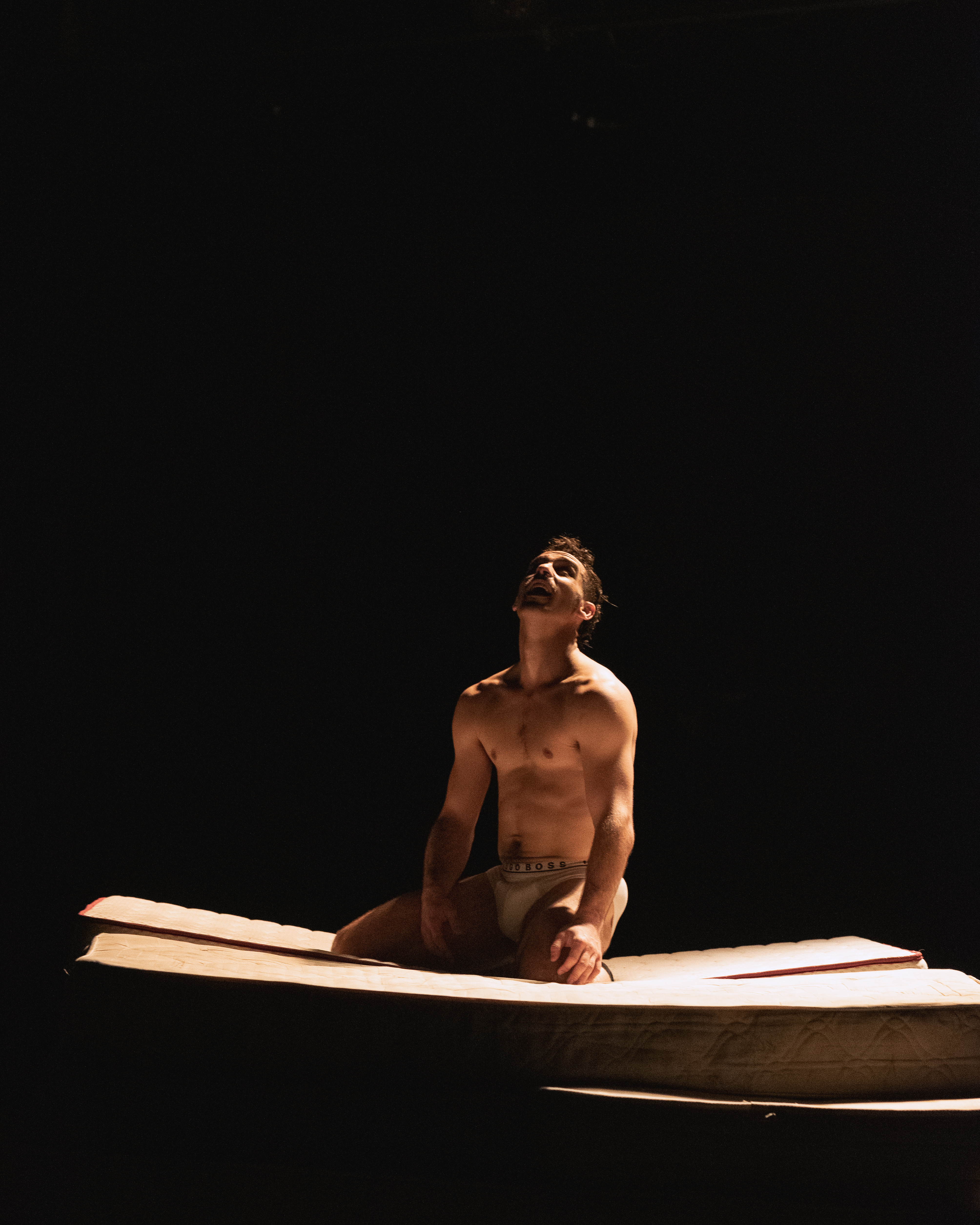JTDQNHD (full length)
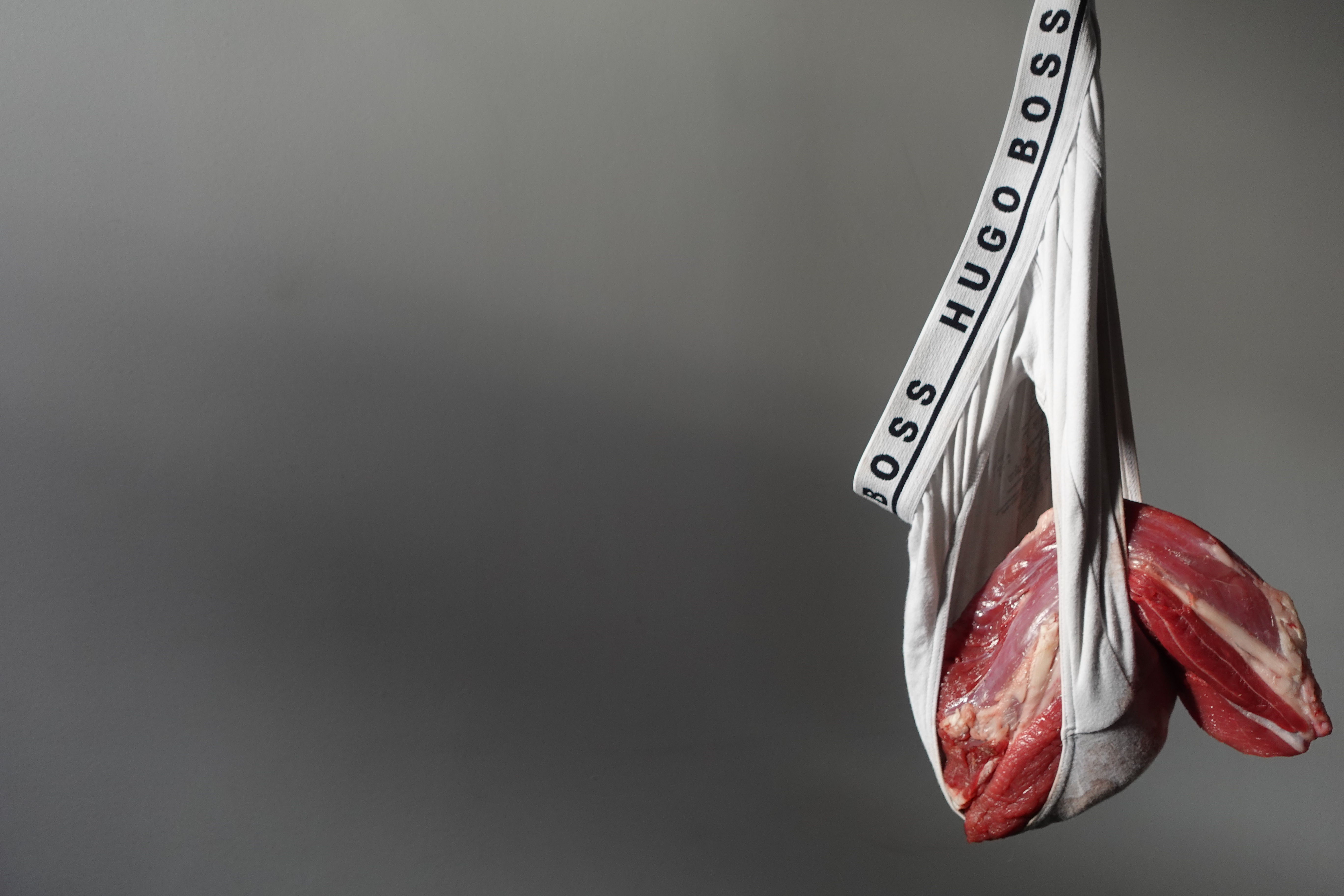
JTDQNHD (full length)
- Type: Independent
- Genre: Physical Theatre
- Date: 2023-06-02
- Location: Centro Coreográfico Canal, Nave 73
- Number of performers: 1
- Duration: 75 mins
Jugamos Tan Duro Que Nos Hacemos Daño
Full length solo performance.
Performance dates:
- May 11th Teatro Area Nord, Naples
- June 2024 Nave 73, as part of the queer festival Jaleo.
- June 24th/25th 2024 Logroño Pride
- 16th-17th august 2024, Festival Internacional de la Ciudad de México
About the production:
"Jugamos tan duro que nos hacemos daño" is the latest production by artist Fernando Troya, translating to "We play so hard it hurts."
The genesis of "Jugamos tan duro que nos hacemos daño" dates back to 2019, focusing on the study of cruising—an event where men gather in public spaces seeking intimate and sexual contact. Historically, this practice emerged due to the lack of spaces for queer individuals and gay men to interact openly, forcing them to hide in the shadows to seek intimacy anonymously. Despite the evolution of these spaces into safer environments, like the Oeverlanden in Amsterdam, cruising remains a stigmatized subject in the Netherlands, and the production aims to open a dialogue on this sensitive topic.
The artistic exploration began in 2020 with the conceptualization of a piece commissioned by the Amsterdam University of the Arts (AHK) for the physical theater department (MIME opleiding). This work, titled "The Art of Loneliness," delves into the feeling of returning home alone despite numerous interactions with others. Subsequent pieces, including "Soft Space Gone Hard" commissioned by the Dutch performing arts university ArtEZ in 2021, and "PETERS" commissioned by the Dutch dance university CODARTS in 2022, contributed to the evolving research on queer dynamics.
The culmination of this research occurred in 2023 with the full-length production of "Jugamos tan duro que nos hacemos daño." While inspired by cruising, the piece goes beyond, exploring the emotional dynamics of queer individuals in relationships with others and, more significantly, with themselves. It delves into the impact of shame and guilt carried from adolescence into adulthood, unraveling toxic and abusive dynamics towards oneself and others.
About the research:
Jugamos tan duro que nos hacemos daño has two important lines of research, the first, is the object as live scenography. The use of the object, in particular 10/12 mattresses, as the scenography the performers interacts with. This helps to enhance the metaphorical imagery the audience receives, and have a very active dialogue with space, constructing and deconstructing new spacing constantly. There are more than 8 different spaces within the performance, and its constructing and deconstructing are coherent with the dramaturgical line of the show. All underlining the major effort the character has to make to go through all the adventures his particular Never Land offers.
The second line of research is based on the study of cruising from an artistic scope. This evolved into the understanding of why shame is such a present emotion in queer relationships and spaces, taking as queer the act of cruising itself - cruising is an event where men gather in public spaces seeking intimate and sexual contact - A space that has been shadowed, stigmatized and condemned by society for way too long. Forcing them to grow up hiding, and most importantly, even liking the adrenaline these encounters provide, almost like a drug. This turned the interest of the maker towards the toxicity queer relations might hold due to the impact this uprising has. The abuse we seek, perceiving ourselves as something that should be punishable and hidden. We do not only find it difficult to establish limits for others, but for ourselves, delving into destructive behaviors, and being confused by the necessity of being taken care of and not knowing what that even means for ourselves.
All of the studies above are interlaced with the Peter Pan fairy tale, to give the performance an extra dramaturgical layer and a unifying thread. This allows to draw a parallelism in between the characters of the fairy tale and the spaces in which the novel occurs with the autobiographical traces contained in the performance
“I have traveled to Neverland and met many Lost Boys. Lost men playing Lost Boys” (from one of the texts by José López included in the performance).
